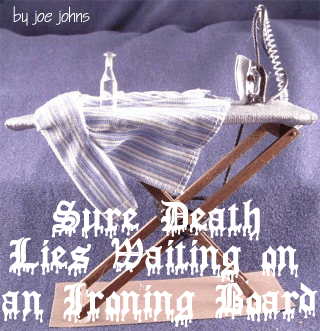| Beeswax is a natural product used
in many everyday things - things you most likely take for granted
such as; cosmetics, pharmaceuticals, shoe polish, food additives,
chewing gum, candles and the list goes on. Yet, for the
woodworker beeswax can open a whole new world of uses.
Custom finishes
Metal protection
Lubrication of moving joints
Lubrication of fasteners
(screws especially)
Molds
Christmas presents (scented
candles, etc)
And the list goes on - use your imagination and experiment
Beeswax has been used as a wood
finish for ages. In fact, Colonial American woodworkers were instrumental
in using beeswax for furniture finishes. And, during those
times, their process for making it was quite the drawn out affair.
They first had to climb inside a tree to steal the wax combs, make
the stain, extract turpentine for the solvent, make a pot to melt
the wax in, build a fire to melt the wax and all the while this is
going on the wife is standing in the kitchen nagging the poor guy
for a stupid shelf or another wooden bowl instead of weaving the
cloth he needs to spread his newly made wax finish (times were tough
in Colonial days).
Fortunately for you all of that
malarkey is a thing of the past and is
quite unnecessary although your wife should still be in the kitchen.
What I have for you is pure Montana beeswax - nothing added
and nothing taken away.
The price is $8.00
per pound
I can get right at
two pounds in the small USPS
Priority Mail flat rate box and about eleven pounds in the medium.
I weigh each block
with a postal scale so you're only being charged for the wax, not
the box.
Click
HERE to order or to request additional
information.
In your email
please specify
how much you want and your physical mailing address. The molds I use
don't always come out the same weight, hence the postal scale.
When I get your order boxed up I will send you a note with the total
of product and shipping charges.
While
you're deciding if you want to order some or how much
then you can take a few minutes and read the story of my
first experience making a beeswax finish. Simply
click on the picture and you'll be whisked away.

Beeswax woodworking finish recipe
I suppose if you donned a mad
scientist gown and painted on a maniacal face you could come up with
some of your own recipes. However, keep in mind beeswax is
technically a solvent based product. This means it doesn't mix
with water - it fact, it, quite literally, walks on water - so using
a water-based stain isn't going to work for you. I've had very
good luck using Minwax and Old Masters products and I'm sure there
are others out there but I simply haven't tried them.
This is the finish recipe I use
and it makes enough to almost fill the size of can car wax comes in.
In my case I use Planter's nut cans because they're about the right
size and they come equipped with a perfect sealing snap lid.
What a deal! You get to eat the nuts then use the container -
you can't any greener 'n that folks!
-
8 oz. (give or take by weight) of beeswax
(preferably purchased from me because I care and I'm a good guy)
-
6 fl. oz. of true Mineral Spirits
(not the green, tree-huggin',
California-it's-gonna-kill-us-now-if-we-don't-outlaw-it-yesterday
kind)
-
2 to 4 fl. oz. of your stain
color (the more you use the darker the paste wax will be)
-
A suitable container to melt the
wax (I use a metal coffee can with the top lip bent in to create
a pouring spout)
-
A hot plate or some form of
heating device
-
A wooden stirring stick
Once all your ingredients, components
and utensils are together it's time to concoct your finish...
Note: beeswax melts at a rather low
temperature so don't let it get too hot - a low to medium-lo setting
is best.
Note: once the wax has melted you are
now into constant stirring mode.
Note: you have plenty of time here so
don't get antsy.
-
Add Mineral Spirits
-
Add stain
Stir for approximately 91 and 3/4
seconds then pour it into your hopefully clean and now certainly
green Planter's peanut can and set it aside to cool into a paste
state (around 3 hours). Do not put the cover on the can until
after it has fully cooled.
Now you're ready to apply it on your
woodworking project, coat the surfaces of your cast iron equipment or
whatever.
Remember, mineral sprits will flash
off so keep the can covered when you're not using it.
|